Talk to any medical professional, and they’ll tell you that there is no such thing as “curing” a virus. Viruses are tiny microorganisms which invade in the cells of your body and uses the components of your cells itself to grow and multiply, Coronavirus is no different. So the only defence against them is your own immune system.
The process of improving the immune system largely depends on three factors:quality sleep, regular exercise and a healthy diet. Yes, it is important to have a immune-boosting diet especially during a viral pandemic COVID-19 which the entire world is currently experiencing. Always remember, your immune system is your best shield in the battle against coronavirus and quality food will help you to boost your immune system.
Getting variety of vitamins and minerals from your daily diet will improve your immune system and will enable it to properly fight illness, potentially reduce its severity, and speed up recovery.
Here is a list of Anti-Viral foods to build your immune system and help you to gain resistance against coronavirus.
1. Foods rich in vitamin C
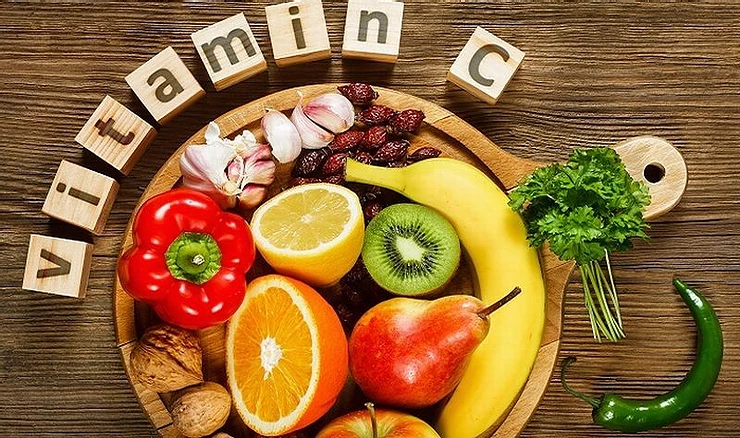
Most of us are aware of the fact that vitamin C is crucial for a good immune response. But it’s especially important when our bodies are under a viral attack. Studies have also shown that boosting vitamin C in the body can help support recovery from viral infections.The recommended Daily Value (DV) of vitamin C for men is 90 mg per day and for women it is 75 mg, but breastfeeding women need an extra 30 mg and people who smoke need an extra 35 mg per day.Foods rich in vitamin C include orange, lemons, guava, gooseberry, kale, kiwi, lychee, papaya, broccoli, red, green or yellow pepper, sweet potato, strawberries, and tomatoes.
2. Foods rich in vitamin E
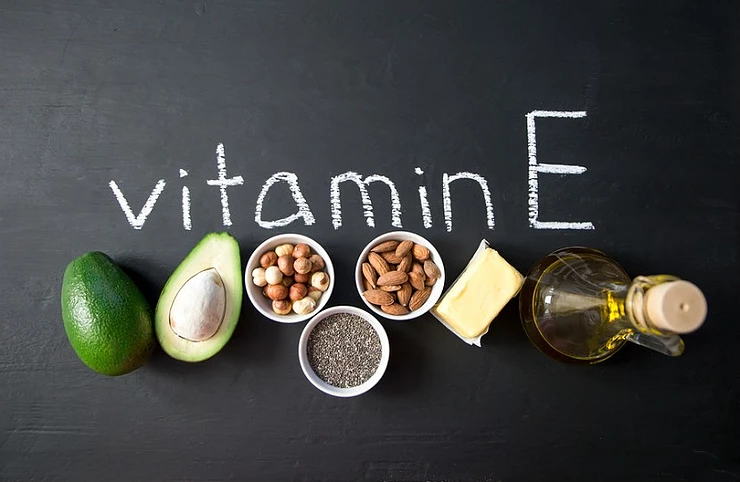
Like vitamin C, vitamin E is also a powerful antioxidant. Research suggests maintaining sufficient levels of vitamin E is crucial for maintaining a healthy immune system, especially among older people, who are more vulnerable to any form of diseases including coronavirusRecommended daily intake of vitamin E is 15 mg for both men and women, however for pregnant women it is 19 mg per day. To get your fill of vitamin E, look to these foods: sunflower seeds, almonds, spinach, broccoli, avocados, kiwi fruit, millet, hazelnut and peanut butter.
3. Foods rich in zinc
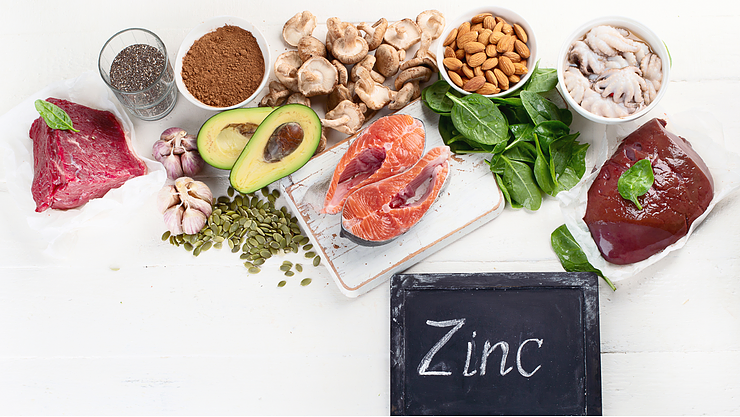
Zinc as one of the top recommendations for immune-boosting nutrients. Zinc has also been found to help produce and activate T-cells (t-lymphocytes), which trigger the body to respond to infections, according to the National Institutes of Health (NIH)For a faster recovery, start taking zinc to treat your illness within the first 24 hours of symptoms. It’s recommended that men eat 11 mg of zinc per day, while women need 8 mg. However, if you’re pregnant, you’ll need 11 mg per day, and if you’re breastfeeding, you’ll need 12 mg.Foods rich in zinc are whole grains like cereals, pumpkin seeds, watermelon seeds, millets, sunflower seeds, brown rice, oats, apart from this zinc is also found in meat, eggs, dark chocolates, nuts, some vegetables like beans and kale and even some dairy products like cheese and milk.
4. Foods rich in vitamin D
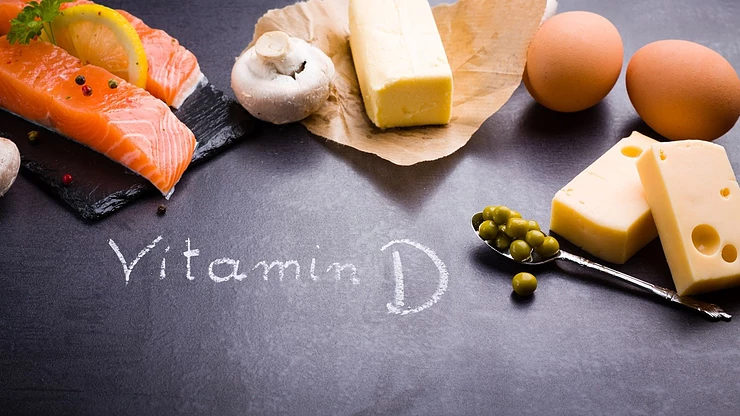
This vitamin plays a critical role in promoting immune response. It has both anti-inflammatory and immunoregulatory properties. It is known to enhance the function of immune cells, including T-cells and macrophages and is crucial for the activation of immune system defences.Besides playing an important role in immune system defence activation, some studies have shown that vitamin D is specifically linked to decrease chances of developing the flu, which is a viral infection.Recommendations from the US Institute of Medicine suggest that an average daily intake of 400–800 International Unit (IU), or 10–20 micrograms, is adequate for 97.5% of individuals.Foods rich in vitamin D includes egg yolks, fatty fish like tuna, mackerel, and salmon, oysters, mushrooms, cow’s milk, orange juice, whole-grain millets, whole-grain, cereal and oatmeal.
5. Fiber-rich foods
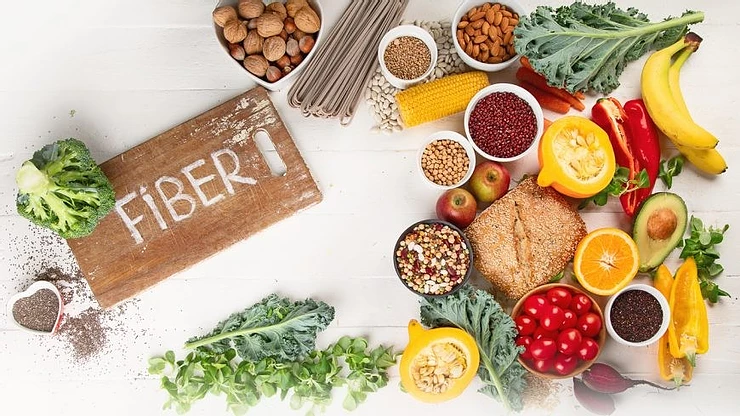
Fiber keeps you full, improves health, and aids weight loss. New research shows that large amounts of fiber can speed up your recovery from bacterial infections. Fiber changes immune cells from being pro-inflammatory warrior cells to anti-inflammatory peacekeeper cells, which stimulates the body’s infection-fighting T-cells.High-fiber diet as a good way to boost overall health and better prepare your body to fight off illnesses.The recommended daily intake is 25 grams for women and 38 grams for men.High-Fiber foods include some fruits (bananas, oranges, apples, mangoes, strawberries, raspberries, pears), Vegetables (carrots, beets, broccoli, collard greens, spinach, artichokes, potatoes), Beans and Legumes (quinoa, popcorn, oats, peanut), Nuts and Seeds (almonds, pistachios, pumpkin, sunflower seeds), millets and our favourite Dark Chocolates.
6. Food rich in vitamin B6
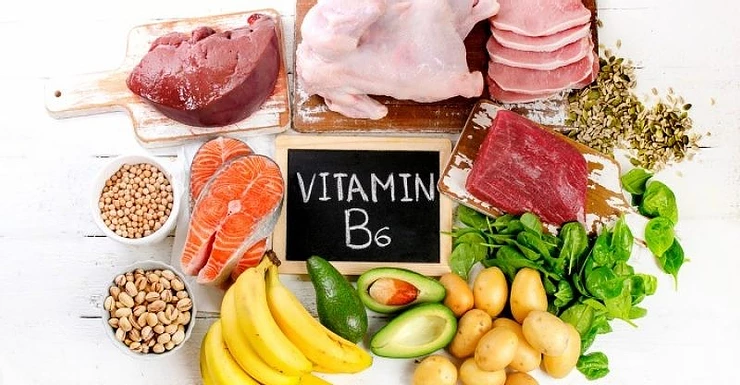
Vitamin B6 is extremely vital to supporting biochemical reactions in the immune system. Vitamin B6 recommended daily doses is 30–75 mg a day. Vitamin B6-rich foods include eggs, chicken and cold-water fish, vitamin B6 is also found in green vegetables (spinach, carrots), milk, bread, banana, millets and peanuts.
7. Prebiotics and probiotics
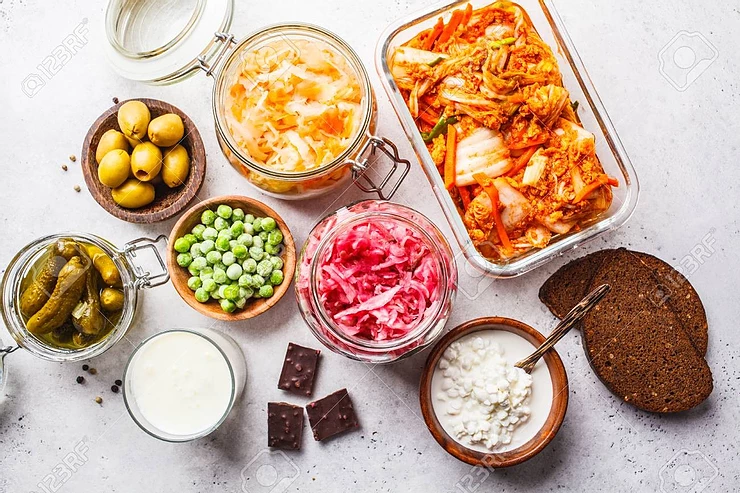
Probiotics and prebiotics are increasingly being added to foodstuffs with claims of health benefits. Probiotics are live microorganisms that are thought to have beneficial effects on the host, whereas prebiotics are ingredients that stimulate the growth and/or function of beneficial intestinal microorganisms, this plays an important role in boosting your immune response. Research shows that probiotics can help promote the production of natural antibodies and can optimise the body’s immune response to viral infection.Food rich in probiotics include yogurt, kefir, fermented cheese and buttermilk, and foods for prebiotics include garlic, onion, oats, apples, banana, whole-grain wheat, whole-grain millets, whole country corn and raw honey.

